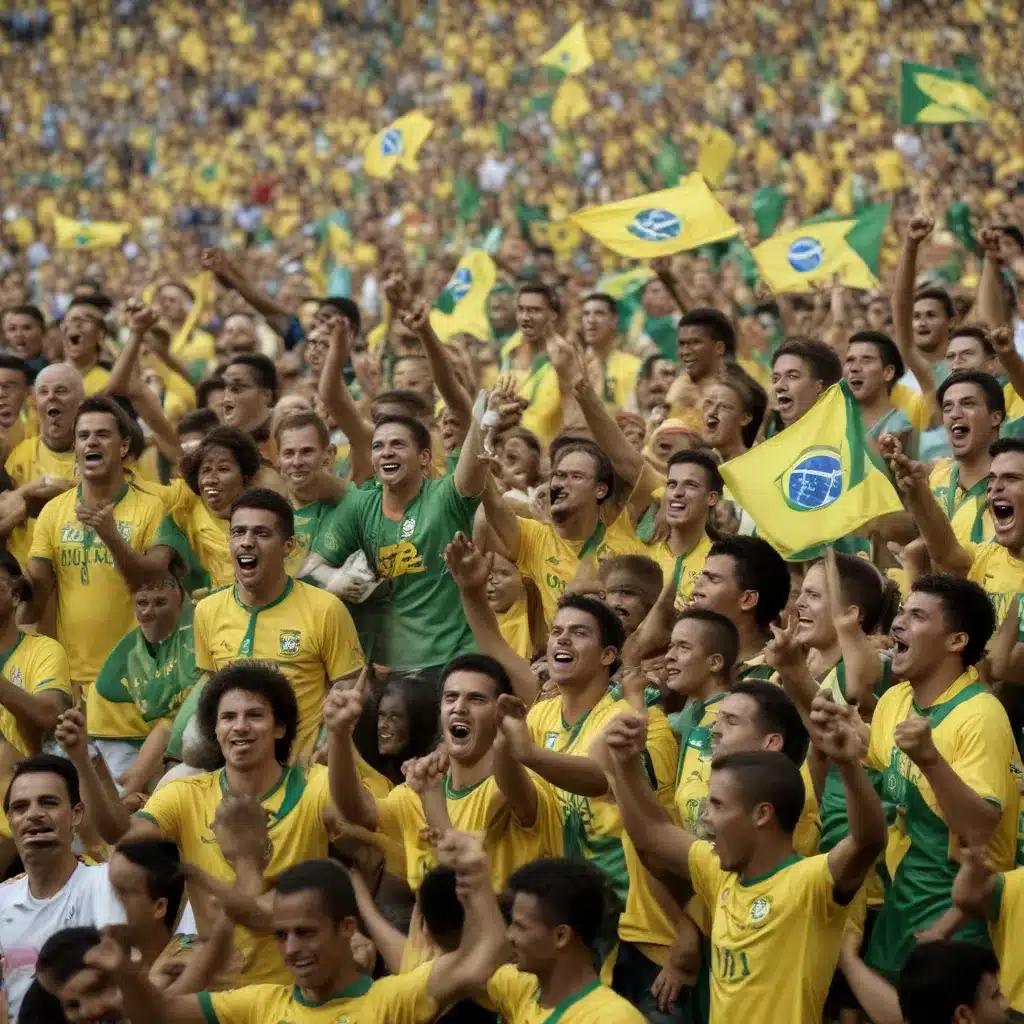
Brazilian Football Landscape
The Brazilian football landscape is a tapestry of rich history, iconic players, and fierce rivalries woven together at both the national and state levels. Nowhere is this more apparent than in the vibrant state-level competitions that have long captivated the nation.
State-Level Competitions
The Campeonato Paulista, Campeonato Carioca, Campeonato Mineiro, and Campeonato Gaúcho are the premier state-level championships that have shaped the development of the beautiful game in Brazil. These tournaments pit the top clubs from each state against one another, creating intense derbies and showcasing the unique cultures and playing styles that have come to define different regions of the country.
The Campeonato Paulista, for instance, is the oldest and most prestigious state league, dating back to 1902. Clubs like São Paulo FC, Corinthians, Palmeiras, and Santos have dominated this competition over the decades, with their fierce rivalries captivating fans across the state of São Paulo. The Campeonato Carioca, meanwhile, features the iconic “Clássico Carioca” derby between Flamengo and Fluminense, as well as the longstanding battles between Botafogo and Vasco da Gama.
In the south, the Campeonato Gaúcho has witnessed the rise of powerhouses like Internacional and Grêmio, whose supporters have passionately followed their teams’ fortunes in this fiercely contested state league. Similarly, the Campeonato Mineiro in Minas Gerais has showcased the talents of clubs like Atlético Mineiro and Cruzeiro, who have produced numerous legends of the Brazilian game.
Political Influence in Football
Government Involvement
The influence of politics on Brazilian football is undeniable, with state governments often playing a direct role in the operations of the country’s top clubs. Many of the most successful teams, such as Flamengo, Corinthians, and Atlético Mineiro, have historical ties to state-owned companies or government institutions.
This close relationship between politics and football has manifested in various ways, from state-funded stadium construction projects to the direct involvement of government officials in club management and decision-making processes. The state-owned oil company Petrobras, for example, has been a major sponsor of numerous Brazilian clubs, while state-level politicians have often wielded significant influence over the leadership and strategic direction of their local teams.
Regulatory Frameworks
The governance of Brazilian football is also heavily shaped by a complex web of laws, regulations, and administrative bodies. The Brazilian Football Confederation (CBF) serves as the national governing body, overseeing the various state-level federations and their respective competitions.
However, the political landscape has often influenced the way these regulatory frameworks are implemented and enforced. Allegations of corruption, nepotism, and cronyism have plagued the CBF and its affiliates, with concerns raised about the transparency and fairness of decision-making processes.
Economic Factors
Club Finances
The economic realities of Brazilian football are equally complex, with the financial fortunes of the country’s top clubs often closely tied to their political connections and the broader economic climate. Clubs like Flamengo and Corinthians, for instance, have been able to leverage their massive fan bases and commercial partnerships to generate significant revenue, while smaller teams have struggled to remain competitive.
The reliance on state-level sponsorships and government funding has, in some cases, led to concerns about the sustainability and long-term viability of certain club’s financial models. As the global football industry has become increasingly commercialized, Brazilian teams have had to adapt to new revenue streams, such as broadcasting deals, player transfers, and merchandising, to remain competitive.
Player Transfers
The player transfer market has also been influenced by the intersection of politics and economics in Brazilian football. Domestic transfers between clubs are often subject to the whims of club owners and state-level politicians, who may use their influence to dictate the movement of top talent.
Furthermore, the international transfer of Brazilian players has become a significant revenue stream for many clubs, with some of the country’s most promising young stars commanding multi-million-dollar fees from European and Asian teams. This global demand for Brazilian footballing talent has, in turn, created new opportunities and challenges for the country’s clubs and the broader football ecosystem.
Intersection of Politics, Economics, and Football
Impact on Competitive Balance
The intricate relationship between politics, economics, and football in Brazil has had a significant impact on the competitive balance within the country’s state-level competitions. The uneven distribution of resources and influence has, at times, led to the dominance of a few well-connected clubs, while smaller teams have struggled to maintain a foothold in the top tiers of their respective state leagues.
This imbalance has, in turn, shaped the way fans engage with and perceive the state-level championships. The perceived lack of parity and the sense that certain teams have an unfair advantage has, at times, eroded public trust and enthusiasm for these competitions.
Societal Implications
The interplay of politics, economics, and football in Brazil extends far beyond the confines of the pitch, with the state-level competitions often serving as a reflection of broader societal dynamics and power structures. The passionate fan bases that support their local teams have become more than just avid spectators; they are active participants in a complex cultural and socio-political landscape.
The state-level derbies, for instance, have become sites of community engagement, identity formation, and political expression, with fans using these events to voice their frustrations with local and national governments, as well as to celebrate their regional pride and cultural heritage. This grassroots engagement has, in turn, created new avenues for civic participation and social change, underscoring the profound impact that football can have on the fabric of Brazilian society.
As the country’s state-level competitions continue to evolve, the intricate web of political, economic, and cultural factors that shape them will undoubtedly remain a subject of intense fascination and scrutiny. By understanding the nuances of this dynamic landscape, football enthusiasts and analysts can gain deeper insights into the rich tapestry of the Brazilian game, and its enduring significance within the nation’s cultural and political fabric.
For the latest updates on Brazilian football, be sure to visit brazilian-football.com.

